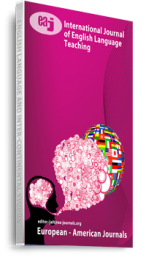This study aims to investigate the vocabulary learning strategies used by Kuwaiti EFL students at the College of Basic Education. It tries to explore the following research questions: what strategies do EFL students use to understand the meaning of unknown English words? Which vocabulary learning strategies do they prefer to use, determination strategies or social ones?The data was collected by means of a questionnaire with 11 multiple-choice questions and one open-ended question. Questions 1 to 7 examine determination strategies: analysing affixes and roots, checking for L1 cognates, analysing available pictures or gestures, guessing the meaning from textual context, using a bilingual dictionary, using a monolingual dictionary, and using word lists. Questions 8 to 11 examine social strategies: asking the teacher for an L1 translation, asking the teacher for a paraphrase or a synonym of the unknown word, asking the teacher for a sentence including the unknown word, and lastly, asking classmates for the meaning. The open-ended question asks the participants about what factors they think can help them understand the meaning of the new vocabulary.After the data was collected, the analysis was carried out, and the results revealed that the participants used most of the determination strategies in questions 1–5, and avoided questions 6 and 7. The findings also showed that the participants used all the social strategies in questions 8–11. In the open-ended questions, some students expressed their preference to study ESL with bilingual teachers and avoid native speaker teachers. They claimed that national EFL teachers helped them in learning new English vocabulary by translating them to Arabic in an easy way, which reflected positively on their understanding of the lessons.
Keywords: EFL, ESL, Vocabulary Learning Strategies, Vocabulary Teaching, word solving

